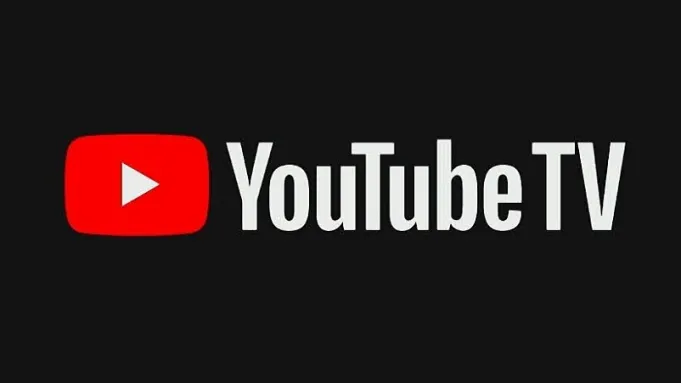Warner Bros. Discovery shares surge 15% after company announces linear, streaming restructuring

Warner Bros. Discovery (WBD) experienced a significant boost in its stock price, with shares rising by 15% after the company revealed plans to restructure its linear and streaming businesses. The announcement marks a bold step in the media conglomerate’s efforts to streamline operations, improve profitability, and respond to the growing challenges in the competitive streaming and cable television markets.
This restructuring, which aims to reshape WBD’s approach to both traditional television broadcasting and digital streaming services, is seen as a critical move to position the company for future growth. The changes are designed to help Warner Bros. Discovery balance its portfolio of legacy media assets while capitalizing on the increasing demand for streaming content.
Restructuring Plans: A Dual Focus
Warner Bros. Discovery’s restructuring strategy involves a dual approach, addressing both linear television (traditional cable) and streaming services. The company intends to focus on optimizing its vast library of content, leveraging its iconic brands such as HBO, CNN, Discovery, and Warner Bros. films and TV shows. The goal is to reduce redundancies across the two areas while creating a more cohesive and financially efficient organization.
For the linear television segment, the restructuring could mean a reduction in the number of channels under the Warner Bros. Discovery umbrella, consolidating operations to focus on higher-performing networks. In particular, the company is expected to prioritize channels that have strong brand recognition and remain attractive to cable operators. The restructuring is also likely to involve reducing operating costs and reevaluating the pricing models for its linear networks.
On the streaming side, Warner Bros. Discovery has emphasized its commitment to maximizing the potential of its digital platforms, including HBO Max and Discovery+. As streaming continues to dominate the entertainment landscape, the company is focusing on expanding its reach while enhancing its content offerings. Analysts expect that WBD will look to reduce overlaps between its various streaming services, potentially merging some of them or introducing new bundles to attract subscribers. This strategy is aimed at improving subscriber growth, increasing viewer engagement, and reducing churn rates, which have been a challenge for many streaming platforms.
Financial Impact and Investor Confidence
Following the announcement, Warner Bros. Discovery’s stock surged by 15%, reflecting investor optimism about the company’s ability to navigate the evolving media landscape. Investors have responded positively to the news of the restructuring, which signals the company’s intent to better align its operations with current market trends. The financial market has been closely monitoring WBD’s progress since the merger of WarnerMedia and Discovery, with some analysts expressing concerns about the company’s ability to integrate its vast array of assets and streamline operations effectively.
The 15% stock increase indicates that investors believe the restructuring will lead to improved financial performance, with potential cost savings and enhanced operational efficiencies. By reducing redundancies between its linear and streaming businesses, Warner Bros. Discovery is expected to improve profitability and potentially generate more revenue from its content offerings.
Moreover, the restructuring efforts come at a time when the media industry is under intense pressure. Streaming platforms are competing fiercely for subscribers, while traditional cable networks are grappling with declining viewership and rising content costs. The restructuring is seen as a proactive response to these challenges, with the company aiming to position itself as a more agile and financially robust entity in a crowded market.
Streaming Market Competition
One of the primary motivations for Warner Bros. Discovery’s restructuring is the intense competition within the streaming market. The company faces stiff competition from established players like Netflix, Disney+, and Amazon Prime Video, as well as emerging platforms such as Apple TV+ and Peacock. In this environment, streaming services are under pressure to differentiate themselves with exclusive content, compelling user experiences, and innovative pricing models.
Warner Bros. Discovery’s content library, which includes blockbuster franchises like Game of Thrones, Friends, and The Big Bang Theory, is a significant asset in this competition. However, the company has faced challenges in maintaining subscriber growth for its HBO Max service, which competes directly with Netflix and Disney+. The restructuring is expected to address these challenges by optimizing the company’s digital offerings and focusing on content that drives subscriber engagement.
WBD has already made moves to strengthen its streaming platforms, such as the recent decision to combine HBO Max with Discovery+ into a single service in some markets. This bundling strategy is designed to create a more attractive proposition for consumers, offering a broader range of content under one subscription. The company’s restructuring could further refine these offerings, leading to more competitive pricing and content strategies.
Long-Term Strategy and Content Focus
Beyond the immediate restructuring, Warner Bros. Discovery’s long-term strategy seems focused on content-driven growth. The company’s extensive library of films, TV shows, and documentaries provides a strong foundation for its future success. The company has also made significant investments in original programming, with a focus on creating exclusive content that appeals to both traditional TV viewers and digital streaming audiences.
As part of the restructuring, Warner Bros. Discovery will likely continue to double down on its global content strategy, focusing on reaching international markets where streaming services are seeing rapid growth. The company’s content portfolio, including international programming and localized content, will be key to expanding its subscriber base beyond North America and competing with global streaming giants.
The announcement of the linear and streaming restructuring at Warner Bros. Discovery represents a pivotal moment for the company. While the media landscape remains highly competitive and unpredictable, the company’s ability to adapt its business model to better serve both traditional TV audiences and digital streaming consumers will be crucial. The 15% surge in stock price reflects investor confidence that the restructuring will enable the company to improve its financial performance and secure a stronger position in the market.
However, the true impact of the restructuring will likely take months or even years to fully unfold. As the company focuses on integrating its assets, optimizing its content offerings, and addressing the challenges in both linear and streaming markets, Warner Bros. Discovery will need to continue innovating and adapting to the rapidly changing media environment. For now, though, the positive market response to the restructuring announcement indicates that investors are hopeful about the company’s future prospects.
In conclusion, Warner Bros. Discovery’s restructuring of its linear and streaming businesses is a strategic move aimed at optimizing operations, reducing costs, and better positioning the company in a highly competitive media market. With its vast content library and commitment to delivering high-quality programming, the company hopes to strengthen its position in both the traditional TV and streaming sectors, ultimately driving profitability and ensuring long-term success.






